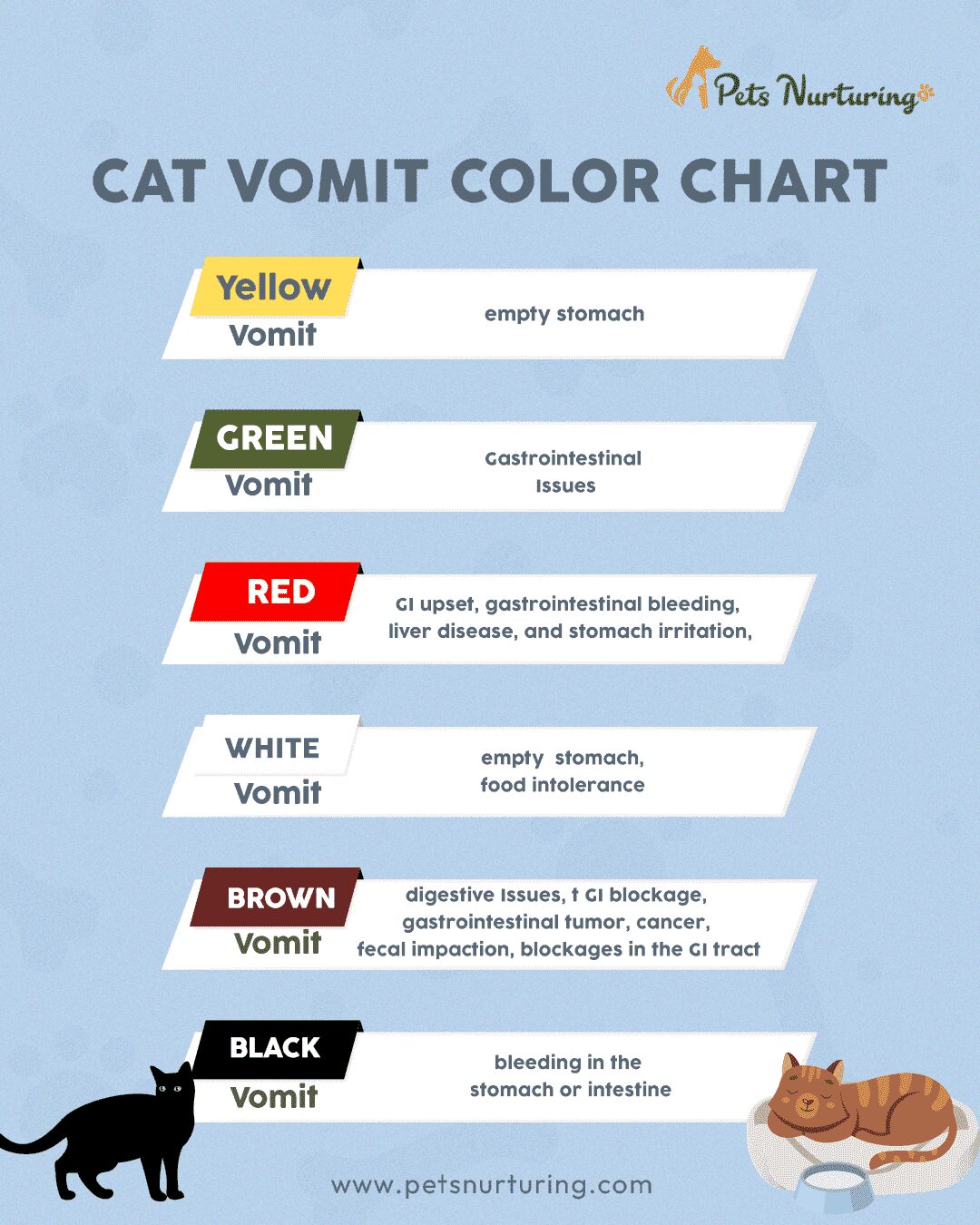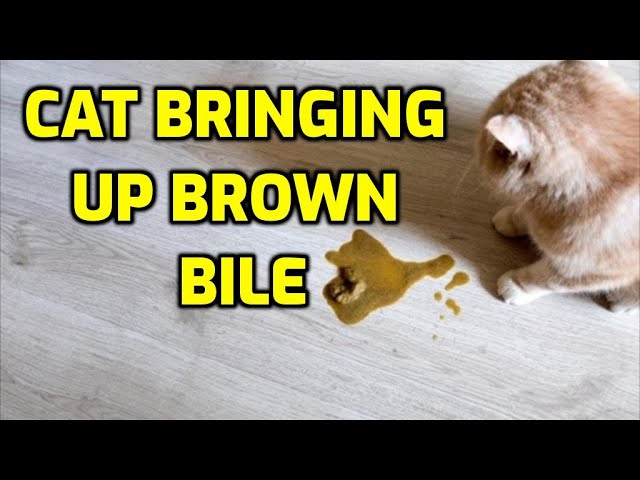Are you a cat owner who has ever wondered why your furry friend sometimes throws up water? If so, get ready to uncover the mystery behind this common feline behavior. Understanding why cats vomit water can provide valuable insight into their overall health and well-being. By delving into this subject, you'll gain the knowledge needed to ensure your cat's happiness and prevent any potential health issues. So, let's embark on a journey to unravel the secrets of why your cat might be throwing up water, and discover how you can help them lead a healthier life. Get ready to become an expert in feline behavior!
Key Takeaways:
- Cats may vomit up water due to a variety of reasons, including hairballs, overeating, or dietary issues.
- It is important to monitor your cat's vomiting frequency and consistency to determine if it is a cause for concern.
- If your cat is consistently throwing up water, it may be necessary to consult with a veterinarian to rule out any underlying health issues.
- Feeding smaller and more frequent meals can help prevent vomiting in cats prone to overeating.
- Regular grooming and the use of hairball remedies can help reduce the occurrence of hairballs and subsequent vomiting in cats.
The Mystery of Cats Throwing Up Water: What's Behind It?
Understanding the Digestive System
When it comes to understanding why cats throw up water, it's important to first understand how their digestive system works. Like humans, cats have a stomach and intestines that help break down food and absorb nutrients. However, there are some key differences. For example, cats have a shorter digestive tract compared to humans, which means food moves through their system more quickly.
A cat's stomach produces digestive enzymes and acid to help break down food. The food then moves into the small intestine, where nutrients are absorbed into the bloodstream. Any undigested or indigestible material continues into the large intestine before being eliminated as waste.
The Role of Water in a Cat's Digestion
Water plays a crucial role in a cat's digestion. It helps soften and break down food so that it can be easily processed by their digestive system. Additionally, water is essential for maintaining hydration and overall health.
Cats typically obtain water from both their diet and drinking water directly. Wet cat food contains a significant amount of moisture, which helps keep them hydrated. However, cats also need access to fresh drinking water throughout the day to meet their hydration needs.
Why Do Some Cats Vomit Clear Liquid Instead of Food?
Possible Reasons for Vomiting Clear Liquid
If your cat is vomiting clear liquid instead of food, there could be several reasons behind it:
- Hairballs: Cats groom themselves by licking their fur, which can lead to the ingestion of hair. Hairballs can form in their stomachs and cause irritation, leading to vomiting clear liquid.
- Fast Eating: Some cats have a habit of eating too quickly, which can cause them to swallow air along with their food. This air can build up in their stomach and be expelled as clear liquid through vomiting.
- Gastritis: Gastritis refers to inflammation of the stomach lining. It can be caused by various factors such as dietary changes, infections, or allergies. Vomiting clear liquid can be a symptom of gastritis.
When to Consult a Veterinarian
If your cat is frequently vomiting clear liquid or showing other concerning symptoms like loss of appetite, lethargy, or weight loss, it's important to consult a veterinarian. They can evaluate your cat's overall health and determine the underlying cause of the vomiting.
Common Symptoms to Watch for If Your Cat is Vomiting Water
Vomiting water can be a sign that something isn't quite right with your cat's health. Here are some common symptoms to watch for:
- Frequent Vomiting: If your cat is vomiting water on a regular basis, it could indicate an underlying issue that needs attention.
- Lethargy: If your cat seems unusually tired or lacks energy, it could be a sign that they're not feeling well.
- Loss of Appetite: A decrease in appetite or refusal to eat may accompany vomiting and could signal an underlying problem.
- Weight Loss: If your cat is losing weight without any apparent reason, it's important to investigate further.
Potential Underlying Medical Conditions Causing Cats to Vomit Water
Gastrointestinal Issues
Several gastrointestinal issues can cause cats to vomit water. These include:
- Gastroenteritis: Inflammation of the stomach and intestines, often caused by dietary indiscretion or infections.
- Inflammatory Bowel Disease (IBD): A chronic condition characterized by inflammation in the digestive tract, leading to vomiting and other symptoms.
- Gastric Obstruction: When something blocks the passage of food through the digestive system, it can result in vomiting.
Other Potential Causes
In addition to gastrointestinal issues, other potential causes of cats vomiting water include:
- Kidney Disease: Cats with kidney disease may drink excessive amounts of water and subsequently vomit it back up.
- Liver Disease: Liver problems can affect a cat's digestion and lead to vomiting.
- Pancreatitis: Inflammation of the pancreas can cause digestive disturbances, including vomiting.
Ensuring Your Cat Stays Hydrated Without Experiencing Frequent Vomiting
To ensure your cat stays hydrated without experiencing frequent vomiting, consider the following tips:
- Provide Fresh Water: Make sure your cat has access to clean drinking water at all times. Change the water regularly to keep it fresh.
- Dietary Modifications: Talk to your veterinarian about potential dietary changes that may help reduce vomiting episodes while maintaining hydration levels.
- Hairball Prevention: Regular grooming and the use of hairball remedies can help prevent the formation of hairballs, reducing the likelihood of vomiting.
- Slow Feeding: If your cat tends to eat too quickly, consider using puzzle feeders or slow-feed bowls to encourage slower eating habits.
If you're concerned about your cat's frequent vomiting or overall health, it's always best to consult with a veterinarian. They can provide a proper diagnosis and recommend appropriate treatment options based on your cat's specific needs.
Home Remedies and Treatments to Help Prevent Cats from Throwing Up Water
1. Adjusting the Feeding Schedule
If your cat frequently throws up water, it may be helpful to adjust their feeding schedule. Instead of giving them one large meal, try dividing their daily portion into smaller, more frequent meals throughout the day. This can help prevent overeating and reduce the chances of vomiting.
2. Providing Adequate Hydration
Dehydration can contribute to vomiting in cats. Ensure that your cat always has access to fresh water by providing multiple water bowls in different areas of your home. You can also consider using a pet fountain, as some cats prefer running water. Additionally, adding moisture-rich foods such as wet cat food or incorporating water into dry food can help keep your cat hydrated.
3. Minimizing Stressful Environments
Cats are sensitive creatures and stress can trigger vomiting episodes. Create a calm and peaceful environment for your feline friend by providing hiding spots, comfortable resting areas, and interactive toys to keep them mentally stimulated. If there are any major changes happening in your household, such as moving or introducing a new pet, try to minimize disruptions and provide extra attention and reassurance to help alleviate stress.
Potential Underlying Medical Conditions Causing Cats to Vomit Water
1. Gastrointestinal Issues
Gastrointestinal problems like gastritis or inflammatory bowel disease (IBD) can cause cats to vomit water. These conditions may require medical intervention such as prescription diets or medications prescribed by a veterinarian.
a) Gastritis
Gastritis is the inflammation of the stomach lining which can lead to vomiting in cats. It can be caused by various factors including dietary indiscretion, infections, or certain medications. Treatment typically involves a combination of medication to reduce inflammation and dietary changes.
b) Inflammatory Bowel Disease (IBD)
IBD is a chronic condition characterized by inflammation of the digestive tract. Cats with IBD may experience vomiting, diarrhea, weight loss, and decreased appetite. Treatment usually involves a combination of prescription diets, medications to reduce inflammation, and sometimes immunosuppressive drugs.
2. Kidney Disease
Kidney disease is a common condition in older cats that can cause vomiting and increased thirst. It is important to have your cat evaluated by a veterinarian if you suspect kidney disease as early detection and management can help slow down the progression of the disease.
Ensuring Your Cat Stays Hydrated Without Experiencing Frequent Vomiting
1. Encouraging Regular Water Intake
To ensure your cat stays hydrated without experiencing frequent vomiting, encourage regular water intake by providing fresh water at all times in clean bowls or using a pet fountain. Some cats prefer running water, so consider investing in a fountain to entice them to drink more.
2. Incorporating Moisture-Rich Foods
Incorporating moisture-rich foods into your cat's diet can help increase their overall hydration levels. Wet cat food contains higher water content compared to dry kibble and can be beneficial for cats prone to vomiting water. You can also try adding some warm water or low-sodium chicken broth to their dry food to make it more appealing and hydrating.
3. Regular Veterinary Check-ups
Schedule regular veterinary check-ups for your cat to monitor their overall health and hydration status. Your veterinarian can provide guidance on proper nutrition, identify any underlying medical conditions, and recommend appropriate treatments or dietary adjustments to prevent frequent vomiting episodes.
In conclusion, cats may throw up water due to various reasons such as hairballs, eating too quickly, or having an upset stomach. It is important to monitor their behavior and consult a veterinarian if the vomiting persists or worsens.
What would cause my cat to throw up clear liquid?
Indigestion can affect cats just like it affects humans. When cats have indigestion, they may vomit clear liquid, yellow foam, or white foam. If you observe these symptoms in your cat, it is important to contact your local urgent care vet or emergency vet to have your pet examined.
Why is my cat throwing up watery vomit?
Common reasons for cats vomiting consist of hairballs that can cause irritation in the digestive system and lead to vomiting, dietary changes or new food, allergic reactions, and changes in the feeding schedule of the cat.
Why does my cat keep throwing the water?
There are a few possible reasons for this behavior, including the quality of the water, the size and shape of the bowl, and where it is placed. Another possibility is that your cat has realized that they get your complete attention when they flip their water bowl over, or they may simply find it entertaining to play with.
Why is my cat throwing up white foam and clear liquid?
Gastritis, irritable bowel syndrome (IBS), intestinal blockage, pancreatitis, diabetes, kidney and liver disease, hyperthyroidism, and parasites are all potential reasons why your cat may vomit white foam. It is also possible that she is allergic to her food or consuming something she shouldn't.
How do I know if my cat has gastritis?
The most prevalent symptom of gastritis in cats is vomiting. However, since gastritis is usually caused by an underlying health problem, there may be additional symptoms related to the main issue. These can include intermittent vomiting with the presence of food, hair, or bile.
What are the signs of kidney disease in cats?
Common symptoms of kidney disease in cats include increased thirst and urination, occasional vomiting, dehydration, and the presence of sores in the mouth.

















